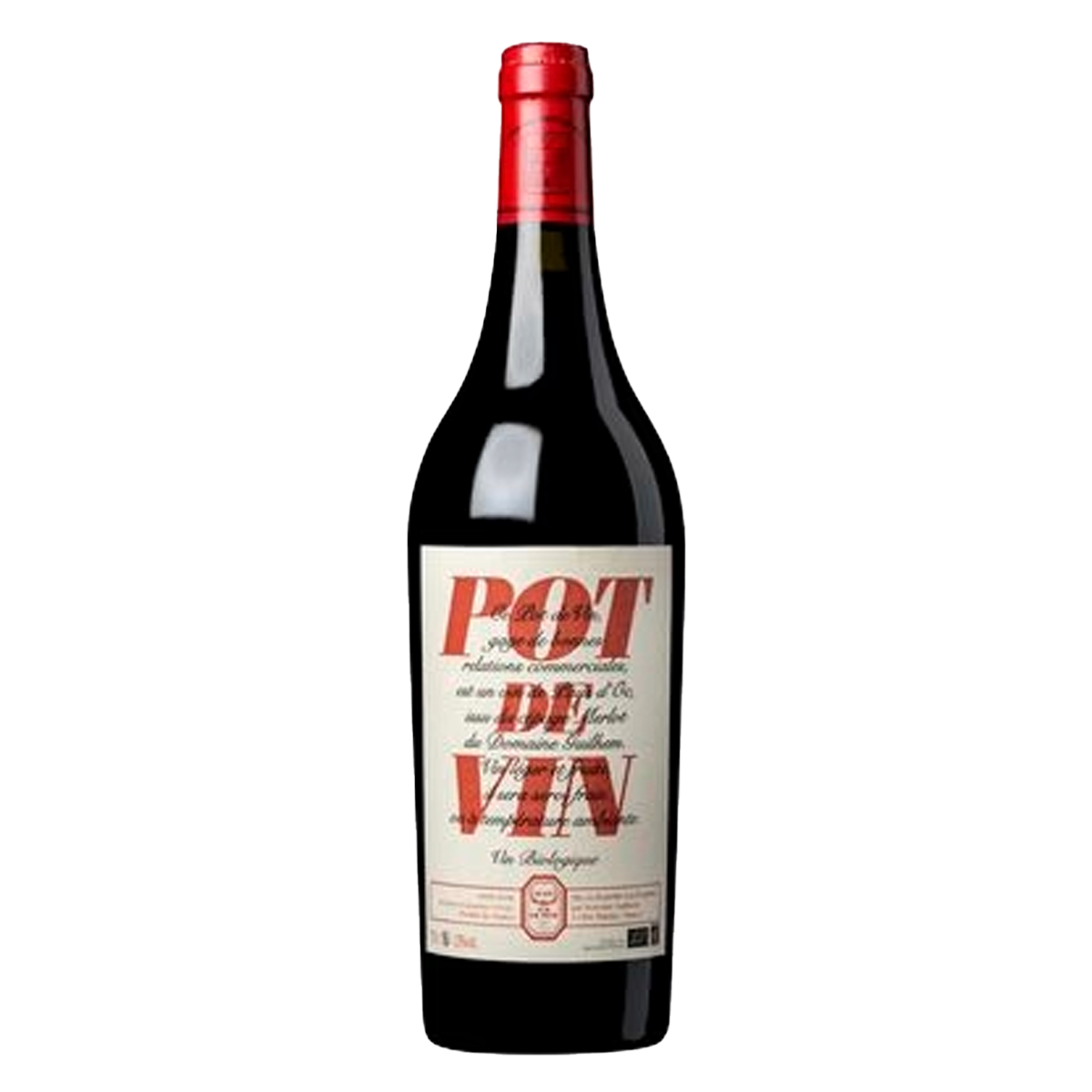1
/
of
1
Pot de Vin
Pot de Vin
Regular price
$18.00 USD
Regular price
Sale price
$18.00 USD
Unit price
/
per
Shipping calculated at checkout.
Couldn't load pickup availability
In the sun-kissed vineyards of the western Languedoc, Château Guilhem presents its meteorically successful bargain red: Pot de Vin 2022. This standout wine is a pure expression of Merlot, a grape variety celebrated for its smooth and velvety character.
The grapes for Pot de Vin are grown on a single site within an old family estate that has been cultivating Bordeaux varieties for generations. The vineyard practices are certified organic and biodynamic, reflecting Château Guilhem's commitment to sustainable and ethical viticulture.
The wine's name, "Pot de Vin," meaning "Bribe" in French, captures the rebellious and authentic spirit of the estate. It's a playful nod to the tradition of resisting certain restrictive practices in the wine industry and stands as a symbol of the estate's philosophy of challenging the status quo.
As for the label, Pot de Vin boasts a knockout design that catches the eye and sparks curiosity, all at no extra charge. It's a wine that not only delights the palate but also pleases the eye.
Upon uncorking, Pot de Vin reveals a vibrant and complex taste profile, with luscious notes of ripe fruits, hints of herbs, and a subtle minerality. Its smooth and velvety texture makes it a pleasure to sip on its own or paired with a variety of dishes.
With each bottle of Pot de Vin, Château Guilhem invites wine enthusiasts to experience a wine that is more than just a beverage—it's a statement of rebellion, authenticity, and a deep-rooted respect for the land and winemaking traditions.
View full details
The grapes for Pot de Vin are grown on a single site within an old family estate that has been cultivating Bordeaux varieties for generations. The vineyard practices are certified organic and biodynamic, reflecting Château Guilhem's commitment to sustainable and ethical viticulture.
The wine's name, "Pot de Vin," meaning "Bribe" in French, captures the rebellious and authentic spirit of the estate. It's a playful nod to the tradition of resisting certain restrictive practices in the wine industry and stands as a symbol of the estate's philosophy of challenging the status quo.
As for the label, Pot de Vin boasts a knockout design that catches the eye and sparks curiosity, all at no extra charge. It's a wine that not only delights the palate but also pleases the eye.
Upon uncorking, Pot de Vin reveals a vibrant and complex taste profile, with luscious notes of ripe fruits, hints of herbs, and a subtle minerality. Its smooth and velvety texture makes it a pleasure to sip on its own or paired with a variety of dishes.
With each bottle of Pot de Vin, Château Guilhem invites wine enthusiasts to experience a wine that is more than just a beverage—it's a statement of rebellion, authenticity, and a deep-rooted respect for the land and winemaking traditions.


